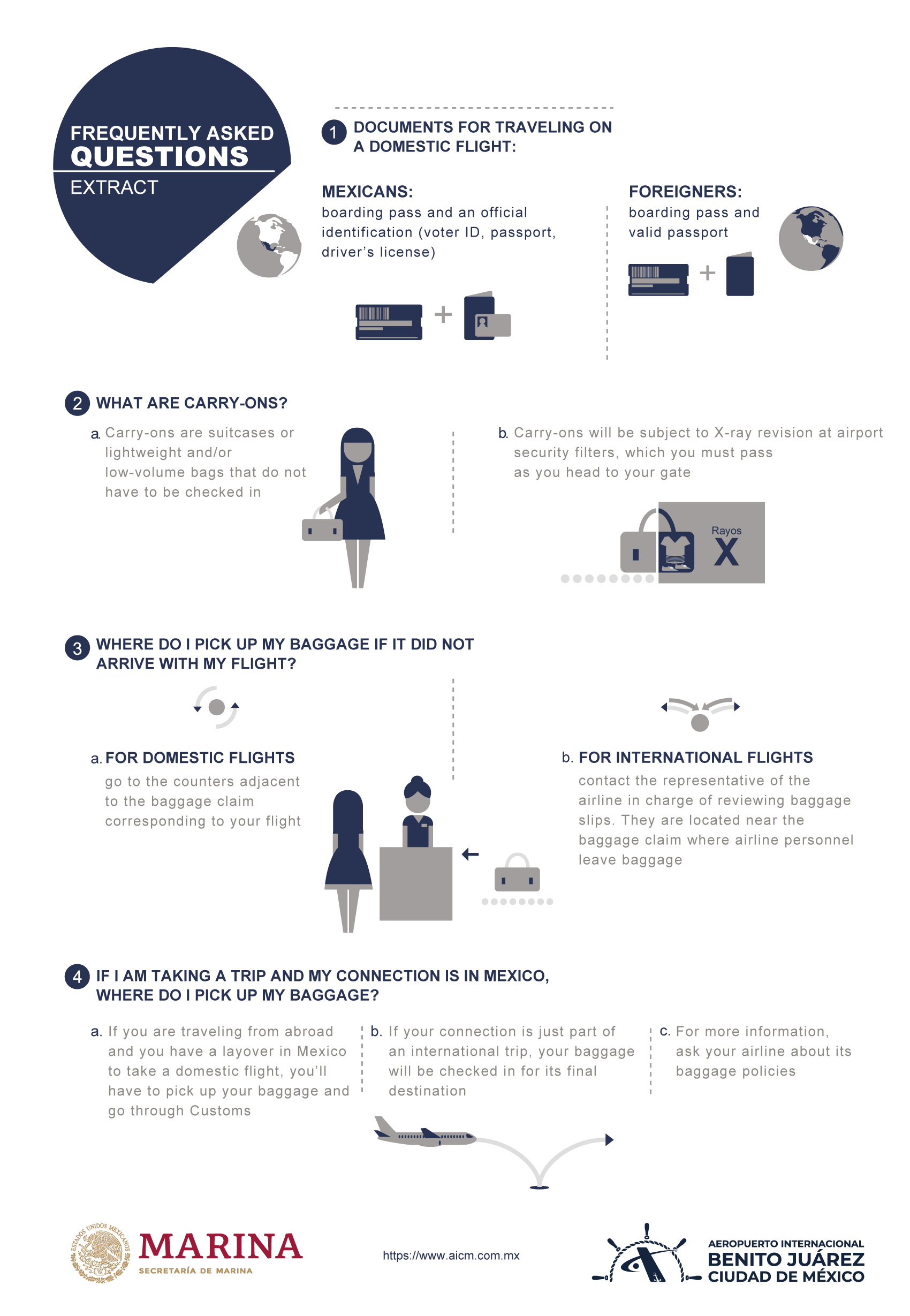Frequently asked questions
Find answers to the most frequently asked questions here regarding security measures that are enforced at airports. You can also call us at: 2482-2400 or email us at: comentarios@aicm.com.mx
Refer to the following infograph:
For domestic flights: only guide dogs are permitted, which much be registered with the airline they are traveling with.
For international flights: pets and guide dogs are permitted. They must be registered with the airline on which they are traveling.
Note: Passengers traveling with a pet must have “Cabina” or “Pet in Cabin” indicated on their ticket.
Human organs: Yes. Human organs are permitted with the documentation accrediting their origin and transit duly authorized by the Secretaría de Salud. These must be placed in a sealed recipient or container with indications on the type of organ. These will be inspected with X-ray machines and explosive-detection equipment.
* As long as the baby is going to travel on the aircraft.
-
- Gaseous oxygen cylinders for medicinal use with a prescription, provided their total weight is no more than
- Cylinders used for prosthetic limbs, as well as enough replacements for the total or expected flight duration.
- Oxygen concentrators certified by the Dirección General de Aeronáutica Civil with a medical prescription.
Note: People using electric wheelchairs must coordinate entry with the airline on which they are traveling.
Carrying liquids, gels and aerosols in carry-on baggage:
The TSA allows passengers to pack in their carry-on baggage personal hygiene items with a liquid or creamy consistency, gels, aerosol and mousse, stowed in the passenger cabin, provided the container (package or bottle) is no more than 100 ml (3.4 oz) and packed in a transparent bag that can be hermetically closed (Ziploc type), whose dimensions do not exceed 19 x 20 cm. (7.5 x 8 inches), for easy inspection by authorities.
The TSA also permits juices, formula for babies and breast milk as long as children are traveling, as well as prescription drugs for diabetic people who can prove their medical condition, such as insulin and other medicine that does not require a prescription and which do not exceed 100 ml (3.4 oz) per container (deposit), including saline solutions for eye care.
Regarding liquids, gels and aerosols purchased at airport Duty Free shops: by law, they will be delivered to passengers during aircraft boarding, immediately after having passed revision of their person and carry-on baggage. If the passenger has a connecting flight in the United States or Canada, the products bought at Duty Free shops must be packed in checked baggage so as to avoid confiscation by authorities. Products purchased on board will be delivered in transparent bags, which must remain closed until the final destination.
The following items are prohibited:
Common and torch lighters and strike-anywhere matches.
For more information, download this file ![]()


 Comunicado de Prensa:
Comunicado de Prensa: 